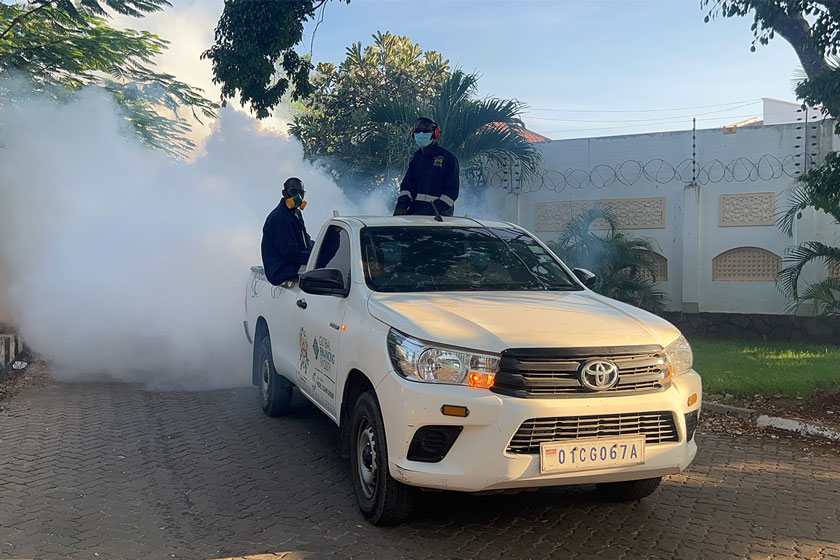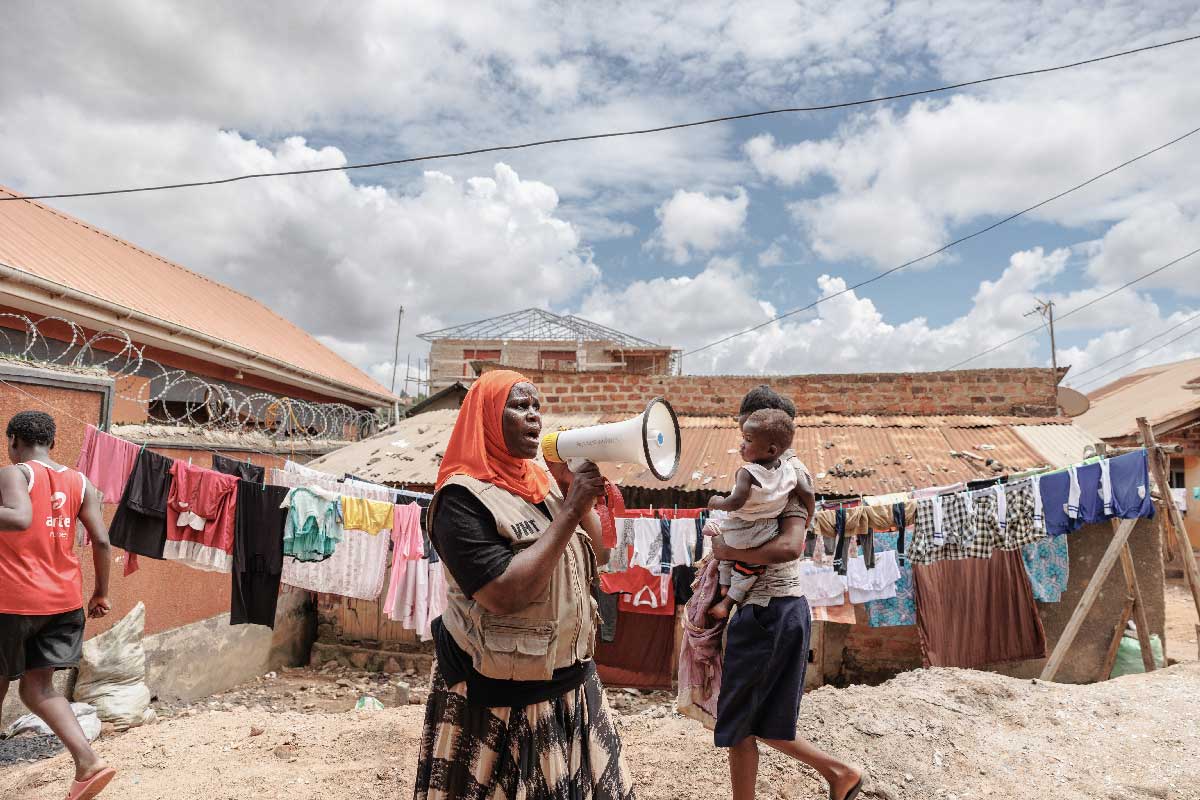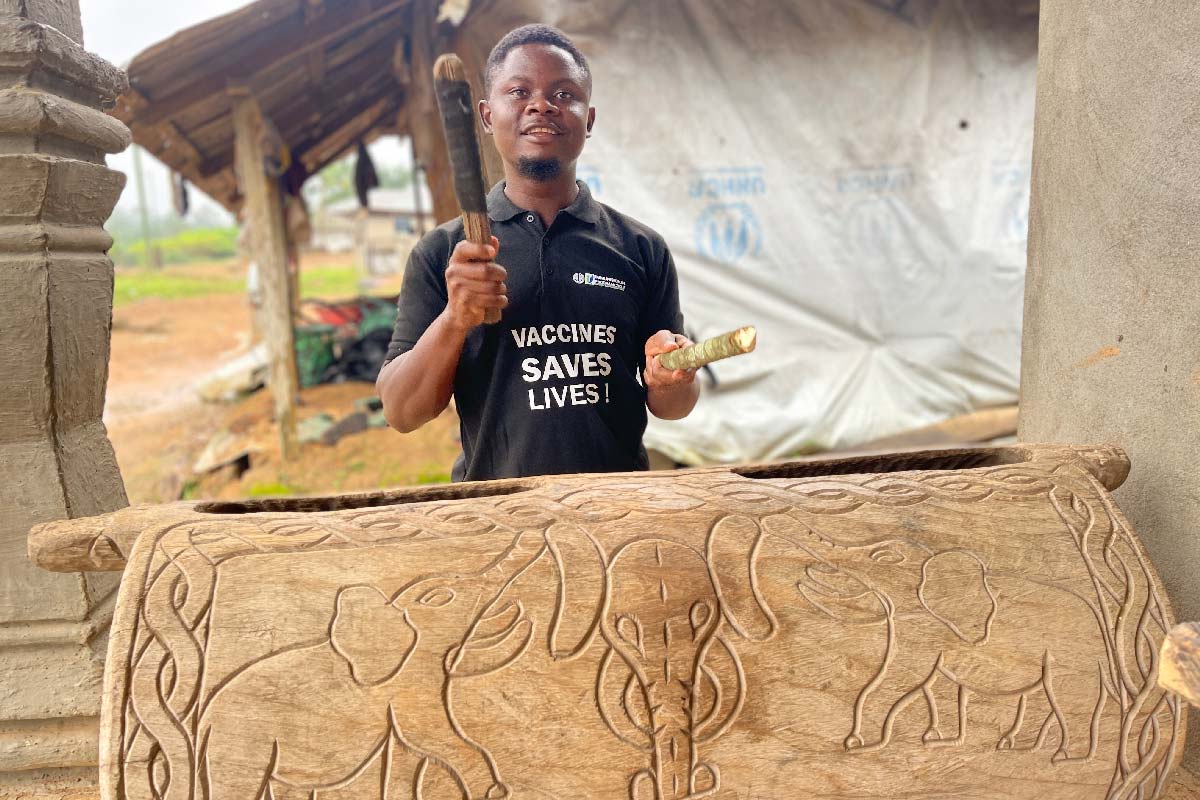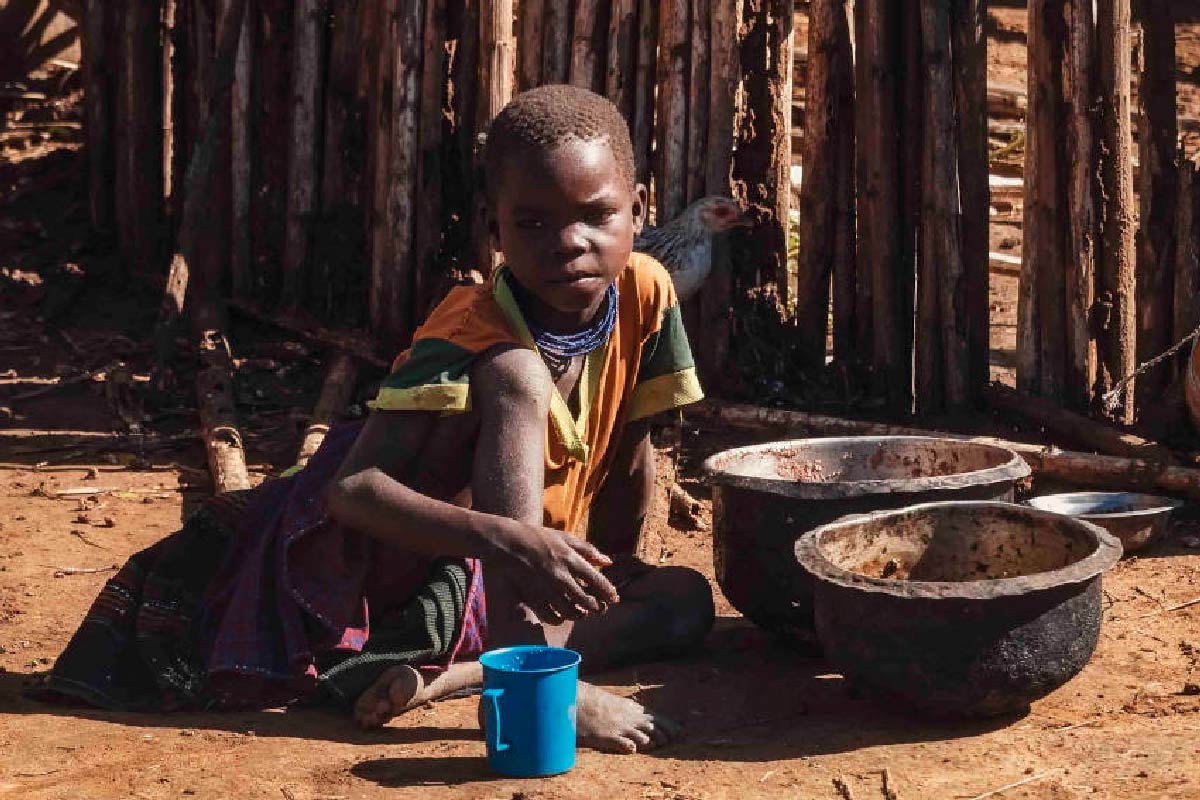How Universal Health Coverage underpins pandemic prevention, preparedness and response
Routine immunisation is one of the most efficient and cost-effective healthcare interventions with the greatest reach and demonstrated health outcomes – an essential building block of the Universal Health Coverage and pandemic prevention, preparedness and response agendas.
- 8 May 2023
- 5 min read
- by Anamaria Bejar , Thiago Luchesi

This week the President of the United Nations General Assembly is convening a series of hearings in New York in preparation for the High-Level Meetings on Universal Health Coverage, Pandemic Prevention, Preparedness and Response, as well as the fight against tuberculosis, that will take place in September 2023.
These meetings are intended to reinvigorate progress on these key sustainable development priorities and will be a crucial opportunity to push forward high-impact solutions, such as routine immunisation, as a cornerstone for resilient health systems that lead to Universal Health Coverage and a strengthened global health architecture to address future health threats.
Reaching more people with routine immunisation and bringing services closer to communities to achieve the ambitious goals of Universal Health Coverage [...] must be a priority of all countries.
More than three years since the World Health Organization declared COVID-19 a "public health emergency of international concern", the shadow of the pandemic still hangs over society. We all share the feeling that the pandemic caught the world off guard. Close to 15 million lives have been lost as a direct result of COVID-19 or from the pandemic's impact on health systems and society. Global progress towards achieving Universal Health Coverage may have stopped or even reversed.
In addition, the pandemic has brought to light the weaknesses and lack of preparedness of health systems and societies in the face of shocks of this magnitude and their protracted consequences, exacerbating inequities and decreasing access to essential services. The most vulnerable and marginalised communities are not only often the first to be affected, but also the least capable of coping with and recovering from crises.
Have you read?
According to the latest Sustainable Development Goals Report, since 2020 the pandemic may have pushed an additional 95 million people into extreme poverty and put 24 million learners globally at risk of not returning to school due to prolonged school closures. Women and girls have also been disproportionately affected by the socio-economic fallout of the pandemic and domestic violence.
Yet, worryingly, COVID-19 may only be a warning of future calamities. Experts have long been warning about the risks of new pathogens emerging and spreading across the world. Meanwhile, we are witnessing more emergency situations driven by climate change, conflicts and humanitarian crises. Analysts estimate the probability of a similar global pandemic of the scale of COVID-19 is between 47-57% in the next 25 years.
By ensuring everyone has access to quality health services, including preventive measures such as routine immunisation, health systems are better equipped to identify and address health threats early, provide timely treatment to those affected, and prevent the spread of diseases, thereby strengthening the health resilience of people and their communities.
Given the ease with which infectious diseases can spread and cross borders, the slogan "no one is safe until everyone is safe" is more relevant than ever – despite the World Health Organization's declaration that COVID-19 is no longer a Public Health Emergency of International Concern. In fact, raising the immunity of people and building resilient health systems is critical to enhance the world's ability to fight pandemics, as much as it is to have strong coordination across countries and partners when major health threats arise.
This is why countries should focus on expanding access to routine immunisation: on the one hand, it protects people from the deadliest diseases and, on the other, it helps to create stronger and more resilient primary health care systems by strengthening an entire service delivery infrastructure, including supply chains, data systems and community engagement.
Routine immunisation can serve as a useful platform to co-deliver other primary health care services that are much needed by communities and therefore help countries achieve the ambitious goals of Universal Health Coverage – that all people have access to the full range of quality health services they need, when and where they need them, without financial hardship.
Universal Health Coverage and pandemic prevention, preparedness and response go hand-in-hand. By ensuring everyone has access to quality health services, including preventive measures such as routine immunisation, health systems are better equipped to identify and address health threats early, provide timely treatment to those affected, and prevent the spread of diseases, thereby strengthening the health resilience of people and their communities.
Achieving Universal Health Coverage requires strong, people-centered primary health care systems that can better address individual and family needs (or barriers) by providing care in the community, and through the community, in turn stopping local outbreaks before they become global epidemics. As routine immunisation is often delivered at the doorstep of communities, it is also the only intervention that brings the majority of households into contact with the health system five or more times during the first year of a child's life. Routine immunisation also reaches 86% of children worldwide, more than any other health service.
Universality also means reaching more people, which is why countries should prioritise reaching zero-dose children – those that have not received even a single dose of any basic vaccine – with routine immunisation. They are often found clustered in marginalised and vulnerable communities facing multiple deprivations and inequity, including gender-related barriers. Prioritising reaching zero-dose children with routine immunisation would, therefore, provide the foundation for Universal Health Coverage as well as pandemic prevention, preparedness and response.
Now that that COVID-19 is no longer a "public health emergency of international concern", we must not return to the status quo. Today, as global attention shifts towards sharing lessons learnt and success stories on Universal Health Coverage and pandemic prevention, preparedness and response, we must ensure communities that have been left furthest behind have universal and equitable access to quality health services, including routine immunisation.
Failing to do so would leave low-income economies and high-risk groups paying the highest price in the next pandemic.








